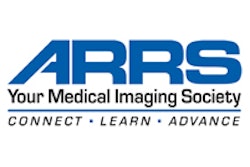
TORONTO - A controversial Canadian study on screening mammography was the subject of a spirited debate on April 19 at the American Roentgen Ray Society (ARRS) annual meeting. The discussion included two researchers who participated in the study and who defended its claim that screening mammography produced no major health benefit.
The discussion over the Canadian National Breast Screening Study (CNBSS) was part of a panel on controversies in screening mammography that opened ARRS 2015. The panel included Dr. Anthony Miller, director of the study and professor emeritus at the University of Toronto, and Dr. Cornelia Baines, also professor emeritus at the University of Toronto; both Miller and Baines participated in CNBSS.
Taking the proscreening stance were Dr. Paula Gordon, from the University of British Columbia, and Dr. Daniel Kopans, professor of radiology at Harvard Medical School. Dr. Charles Kahn, of the University of Pennsylvania, served as moderator.
He said, she said
Miller began by reiterating results from CNBSS, which was originally conducted in the 1980s and involved more than 89,000 women. Data from the trial have been released at various intervals over the years, with the most recent data published last year (BMJ, February 11, 2014). The 25-year follow-up confirmed the study's previous results, indicating that annual screening mammography for women between the ages of 40 and 59 does not reduce breast cancer death beyond the effects of physical exams or usual care from their doctors. The analyses also concluded that there were high rates of overdiagnosis among women who were screened.
"Annual mammography does not result in reduction of breast cancer-specific mortality for women age 40 to 59," Miller told session attendees. "And overdiagnosis is a serious consequence of mammography screening. Research into its amelioration -- and reduction of overtreatment -- is urgently needed."
Next, Baines attempted a line-by-line rebuttal of criticism of the Canadian study. This criticism includes charges that the study's randomization was flawed, palpable cancers were included in the trial design, the quality of the images was suboptimal, outdated equipment was used, and both radiologists and technologists were not sufficiently trained in mammography.
"When people talk about our study, they often say that our randomization was subverted," she said. "In response, I have to ask: What would the motive be? What is the evidence?"
The concern shouldn't be about screening access but rather about its efficacy, according to Baines.
"Dr. Kopans worries that women are denied access to screening, and claims that overdiagnosis is a myth," Baines said. "I worry that screening does more harm than good."
On the other hand, Gordon emphasized that the findings of the Canadian study are outliers compared to other trials.
"The Canadian trial is the only trial to show increased mortality in women assigned to the screening mammography group," she said. "I contend that the NBSS was seriously flawed and the results should not influence policy. Fortunately, Canadian women have ignored the results of the NBSS, and their wisdom is supported by the Pan-Canadian study published last year by Dr. Coldman and colleagues ... which showed a 40% mortality reduction among screened women."
Kopans was the last of the four to give his perspective.
"Dr. Baines and Dr. Miller think I'm evil, but I'm actually quite fond of them," he said. "Yet we're scientists, and we have to look at data very carefully."
The Canadian study violated the rules of randomized clinical trials, according to Kopans.
"The validity of randomized controlled trials is based on blinded allocation," he said. "As we've heard, all women in the CNBSS had a clinical breast exam before allocation, some of which identified lumps in the breast or adenopathy -- and the coordinators had the results of those exams. And although [it was] probably naively done, they likely assigned women with advanced cancers to the screening arm in higher numbers. This makes the conclusions unreliable."
Any questions?
Session attendees had some pointed questions and feedback for the panel. One physician identified himself as a radiologist who participated in CNBSS.
"In the '80s there was no mammography fellowship structure in Canada," he said. "I hadn't read a single mammography during residency, but I was put in charge of my center's participation in this study."
A radiologist from Bangkok commented that "there's no need to be afraid of the Canadian results -- it was the best we could do then." Now, 25 years later, women need to be encouraged to undergo screening mammography, she said.
Another attendee asked why clinically palpable cancers were even included in a screening study. And yet another emphasized the importance of implementing breast cancer screening with the technology and knowledge available today.
"We can't determine what we need to do in the present from what did or didn't happen in a study conducted 35 years ago," she said.
The bottom line
To conclude the session, Kahn asked each panelist to state what he or she would recommend to women considering screening mammography.
"I don't recommend it," Miller said. "I recommend that women be aware of their breasts and go to a physician who has been trained to detect early signs of breast cancer."
"I would like women to be completely informed before they decide to have a mammogram," Baines said. "A recent Australian study showed that when women are given information about mammography, including the rate of overdiagnosis, the uptake of screening is reduced by 30%."
"I recommend that all women begin annual screening at age 40," Gordon said. "I completely agree with Dr. Baines that women should make an informed decision -- but it has to be based on facts, not on overestimates of overdiagnosis. But I also warn women that especially with the first screening mammogram, there's a likelihood that they'll be called back for additional pictures, and that doesn't necessarily mean they have cancer. But the harm of the anxiety is far outweighed by the benefit of early detection."
"Every one of us, not just women, should be informed about all aspects of our healthcare," Kopans said. "I recommend annual mammography, starting at age 40. My concern is groups like the U.S. Preventive Services Task Force, when they say, 'Wait until age 50' -- that has the power to stop insurance companies from paying for mammography before that age, which takes away a woman's right to decide."




















